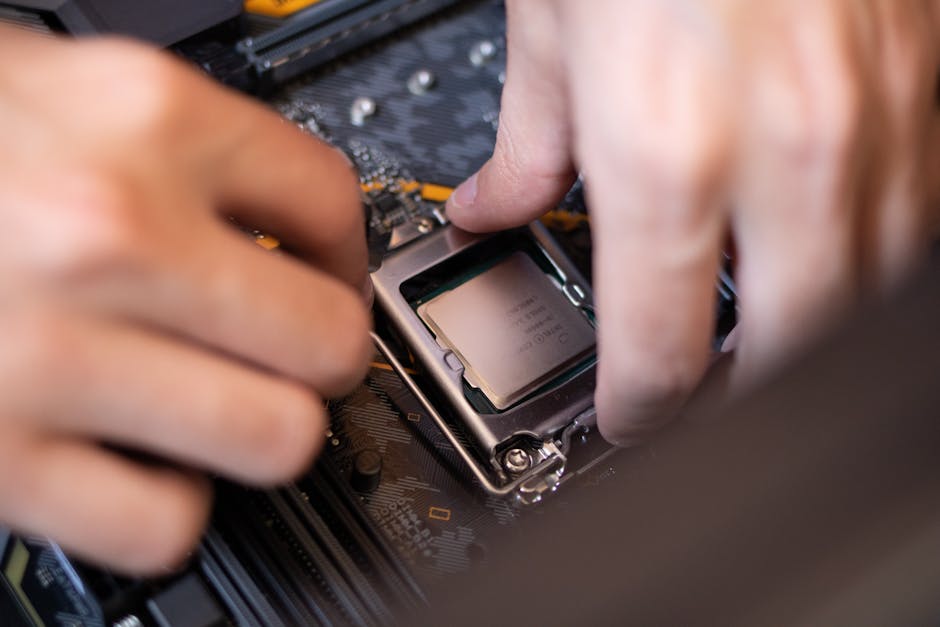The Intelligent Workplace: Revolutionizing the Modern Work Environment
"Discover the concept of an intelligent workplace, its key features, and how it's reshaping the future of work. Learn about the benefits, challenges, and best practices for creating a smart, efficient, and employee-centric work environment that leverages cutting-edge technologies and data-driven insights. "

The Intelligent Workplace: Revolutionizing the Modern Work Environment
In today's rapidly evolving business landscape, the concept of an intelligent workplace is gaining traction as organizations seek to optimize productivity, enhance employee experiences, and stay competitive in the digital age. But what exactly is an intelligent workplace, and how does it differ from traditional office environments? Let's dive into this transformative approach to work and explore its potential to revolutionize the way we operate in the professional sphere.

What is an Intelligent Workplace?
An intelligent workplace is a technologically advanced work environment that leverages cutting-edge tools, data analytics, and artificial intelligence to create a more efficient, productive, and engaging workspace for employees. It goes beyond the traditional digital workplace by integrating smart technologies that adapt to user needs, automate routine tasks, and provide valuable insights for decision-making.
Key features of an intelligent workplace include:
-
Smart Search: Advanced search functionality that allows employees to quickly find the information they need, improving efficiency and reducing time wasted on manual searches.
-
Enhanced Workplace Experience: Tools and technologies designed to improve the overall employee experience, fostering greater satisfaction and productivity.
-
Integrated Intranet: A centralized platform that connects employees with resources, knowledge management systems, and internal communications, supporting seamless workflows.
-
Support for Hybrid Work: Solutions that facilitate flexible work arrangements, ensuring adaptability in various work settings, whether in the office or remote.
-
Knowledge Management Systems: Organized methods of storing, retrieving, and sharing knowledge, enhancing employee learning and information accessibility.
The Evolution of Technology in the Workplace
The journey towards intelligent workplaces has been a gradual one, marked by significant technological advancements over the years. From the introduction of typewriters and telephones to the widespread adoption of personal computers, each innovation has paved the way for more sophisticated work environments.

Recent years have seen a dramatic acceleration in workplace technology, with the emergence of cloud computing, artificial intelligence, and the Internet of Things (IoT). These technologies have enabled organizations to create more connected, data-driven, and adaptive work environments that respond to the needs of modern businesses and their employees.
Benefits of an Intelligent Workplace
Implementing an intelligent workplace offers numerous advantages for both organizations and their workforce:
-
Increased Productivity: By automating routine tasks and providing easy access to information, employees can focus on high-value activities that drive business growth.
-
Improved Employee Engagement: Smart digital tools and interactive environments foster better collaboration and communication, leading to higher levels of employee satisfaction and engagement.
-
Enhanced Decision-Making: Data analytics and AI-powered insights enable more informed and timely decision-making at all levels of the organization.
-
Accelerated Innovation: An intelligent workplace cultivates a culture of experimentation and continuous improvement, driving innovation across the organization.
-
Flexible Work Arrangements: Support for hybrid and remote work models allows organizations to attract and retain top talent by offering flexible working options.
Tools and Technologies for an Intelligent Workplace
Several key technologies form the foundation of an intelligent workplace:
-
Artificial Intelligence and Machine Learning: These technologies power smart assistants, predictive analytics, and automated workflows that enhance efficiency and decision-making.
-
Data Analytics: Advanced analytics tools help organizations derive actionable insights from vast amounts of data, informing strategic decisions and improving operations.
-
Cloud Computing: Cloud-based solutions enable seamless collaboration, scalability, and access to resources from anywhere, supporting flexible work arrangements.
-
Internet of Things (IoT): Connected devices and sensors create smart office environments that can adapt to user needs and optimize resource utilization.
-
Collaboration Platforms: Integrated communication and project management tools facilitate teamwork and information sharing across distributed teams.

Best Practices for Creating an Intelligent Workplace
To successfully implement an intelligent workplace, organizations should consider the following best practices:
-
Develop a Strategic Plan: Create a clear roadmap that aligns technology investments with business goals and employee needs.
-
Build a Culture of Innovation: Foster an environment that encourages experimentation, learning, and adaptation to new technologies and work practices.
-
Foster a Collaborative Environment: Implement tools and design spaces that promote teamwork and knowledge sharing across the organization.
-
Enable Flexible Working Practices: Support hybrid work models and provide the necessary technologies to ensure seamless collaboration between in-office and remote employees.
-
Design Smart Spaces: Create office layouts that incorporate smart technologies and adapt to changing work patterns and employee preferences.
Challenges and Considerations
While the benefits of an intelligent workplace are significant, organizations must also be aware of potential challenges:
-
Data Security and Privacy: With increased reliance on data and connected systems, ensuring robust cybersecurity measures and compliance with privacy regulations is crucial.
-
Integration Complexity: Integrating various technologies and legacy systems can be complex and requires careful planning and execution.
-
Cost and Resource Allocation: Implementing an intelligent workplace requires significant investment in technology, infrastructure, and employee training.
-
Change Management: Successfully adopting new technologies and work practices requires effective change management strategies to overcome resistance and ensure employee buy-in.
The Future of Intelligent Workplaces
As technology continues to evolve, the future of intelligent workplaces holds exciting possibilities:
-
Advanced AI Integration: More sophisticated AI systems will further personalize work experiences and automate complex tasks.
-
Augmented and Virtual Reality: Immersive technologies will transform collaboration and training experiences, especially for remote teams.
-
Biometric Security: Advanced security measures will enhance data protection and streamline access to resources.
-
Sustainability Focus: Intelligent workplaces will play a crucial role in optimizing energy use and reducing environmental impact.
-
Continuous Learning Environments: AI-powered systems will facilitate personalized learning experiences, helping employees develop new skills and adapt to changing job requirements.

Conclusion
The intelligent workplace represents a significant leap forward in how we approach work environments and business operations. By leveraging advanced technologies, data-driven insights, and employee-centric design, organizations can create more productive, engaging, and adaptive workspaces that meet the evolving needs of the modern workforce.
As we continue to navigate the complexities of hybrid work models and digital transformation, the intelligent workplace will play a crucial role in shaping the future of work. Organizations that embrace this concept and invest in creating smart, connected work environments will be better positioned to attract top talent, drive innovation, and thrive in an increasingly competitive business landscape.
By focusing on the key elements of an intelligent workplace – from advanced technologies to collaborative cultures and flexible work practices – businesses can unlock new levels of productivity, creativity, and employee satisfaction. The journey towards an intelligent workplace may be challenging, but the potential rewards in terms of organizational success and employee well-being make it a worthwhile endeavor for forward-thinking companies.
Want to learn more about Hybrid Work?
Explore our complete guide with more articles like this one.


